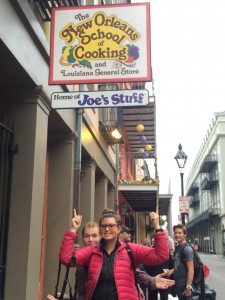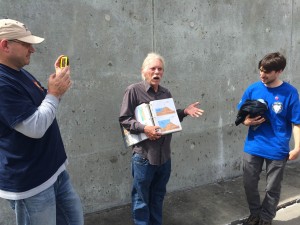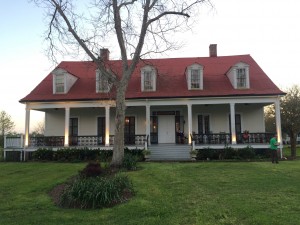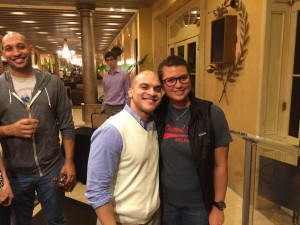Posts
All roads come to an END….
/in /by Jaime Hannans End of life…I find it interesting that our culture does not welcome death as others do. In fact, we seem to be in a state of denial about it. But, it is understandable. Why would we want to think about our wonderful life ending and leaving our loved ones behind? But in reality, it is going to happen someday, and there is no time frame on it, which is why we need to prepare as though it may be tomorrow.
Unlike most young people, I unfortunately experienced death early in life. At the age of 13, I lost my best friend in a tragic car accident. I had previously lost my grandparents, however, losing someone so close to me that was my same age was a huge eye opener for me. Mainly, it made me realize the reality of death at a young age. Ever since Annie’s death, my family and I have been very open about discussing death with one another. Over the years, we have talked about different aspects of death. However, I have never actually thought of myself in the situation of actively dying and what I would want.
My overall thoughts about “what I would want,” are really not about me at all. I feel that at that point, it’s about what my family wants and needs in that situation. At the end of the day, I am passing on and my family has to go on living. In any event, I would want the process of losing me to be as easy as possible. My family and I have had small discussions about this topic, however, we have never gone into too much detail. I honestly have never thought it was all too important to discuss because I feel as though they know my overall feelings about the situation (as I have just discussed). However, this semester has opened my eyes to the importance of these conversations. I have witnessed first hand the vulnerability and desperation that families go through when their loved on is ill and the disharmony that it creates within the family. The last thing I would want is for that to occur in my family. So, I have realized that I need to plan and share with my family in further detail what my wishes are- in writing.
Hard Talks
/in /by Jaime HannansI have actually had an end of life conversation with my family before. It happened right after my grandpa passed away. His death happened in our home, with the family around him, and peacefully in his sleep. I knew that if I or any of my other loved ones were to pass away – that’s how I’d want (or them) to go.
A week after my grandpa passed, my dad sat all the kids down and told us straight out that if something were to happen to him or mom that we should wait 2 weeks. If there were no signs of improvement or prognosis/quality of life was going to be poor, we should take them off life support. It was sad to even think about that kind of situation but my brother, sister, and I agreed that it was important to talk about these things. End of life situations aren’t always expected, and having to make those kinds of decisions during a time of great stress/grief is difficult. That’s why it’s so important to discuss it whenever possible, preferably beforehand. During that discussion I also asked the same – to be taken off support and taken home in 2 weeks if chances of recovery were slim/none/poor quality. I didn’t designate a specific person, but we all agreed that we had the same wishes for ourselves and each other.
I think the way that my family and I view death may be different from other families. I have never been afraid of death because the experiences I’ve had with family deaths were mostly expected and peaceful. I’m not religious, but the rest of my family is very religious and view death as sleeping/waiting. I think the combination of their religious beliefs and the fact that our entire family is pretty stoic/unemotional (probably an Asian thing?) makes our view of end of life, not easier, but more manageable and easier to cope with. I also know that our family/culture has this unspoken agreement that we should take care of our parents/elders. If anything were to happen to my parents I would immediately step up to take care of them. I couldn’t ever put them in a facility/home, and I would definitely want them to be somewhere where they feel comfortable to pass away.
My parents designated me to make the decisions for them (because I’m the oldest child), but they said that they trusted any of us. I know I could trust my dad or mom to make the right decisions for me, and I know that they would both be strong enough to let go if it came down to it. To be honest, I would trust any member in my immediate family to make decisions or make sure my preferences were upheld ( if I had to designate one, it would be my dad). Our family doesn’t talk much or express our feelings (I don’t think I’ve heard an ‘I love you’ in a few months), but we all love each other through our actions and I know in the event of something tragic, my family would be able to support me, my wishes, and the best life/death I could have.
Final Thoughts
/in NOLA /by Sean AndersonMy name is Stephanie Jamal. I am a student in the Communication Program at California State University Channel Islands. Recently, I was given an opportunity to participate in a Service Learning course offered by the Environmental Science and Resource Management Program at my University. The course offers undergraduate students a chance to gain field experience for roughly 11 days in New Orleans, Louisiana. I’ll be honest, I did not know what I was in for before I applied for the course. Additionally, I don’t think any of my previous experience in my academic or personal life could have truly prepared me for what we endured. The craziest part of all this, each of us could have been lounging pool side back in California. Soaking up the sun, enjoying our Spring Break.
Instead, we shuffled through the murky waters of the Delacroix swamp hoping not encounter a venomous snake. For nearly two weeks, we bathed ourselves in Deet aiming to avoid satisfying ever hungry and persistent beast, commonly known as the mosquito. Finally, not to forget our favorite part, recreating our childhood Starwars fantasy. We pretended as if our machetes were actually lightsabers. We slashed and crawled through the unforgiving thorns of overgrown black blackberry bushes that tore at our clothes and skin.
We didn’t do this because any one forced us to. No one paid us to do the labor intensive activities we performed. We went at our own free will. We went because we wanted to. We wanted to learn. We wanted to help. We wanted to experience. It is one thing to be told what you are learning is important. Although, it is completely different to actually experience and understand it first hand. Programs like this don’t just provide an opportunity for students to gain experience. They also contribute much needed time to communities. This, I believe to be the reason why Service Learning is so vital to the survival of society.
We went to New Orleans because we wanted to learn. We wanted to help, and we wanted to experience something completely different from what we knew. In reality, what we experienced in NOLA, was far greater than what any of us could have anticipated. What we took back with us was much more than simple memories or a gold star to use on a resume. What we took back was a connection.
End of Life Decisions
/in nursing420 /by Jaime HannansAfter working several years for a home health and hospice agency, I have cared for several hospice patients and have developed a deep appreciation for hospice. Ideally, I would want to go experience end of life in the comfort of my own home with hospice services. Realistically, however, death can occur in many forms and in emergency situations, I think the best person to help make decisions for me would be my fiancé, or a close friend that can make informed decisions. I believe that culturally, my family being Latino have traditionally relied on family members to help support one another on decisions like these, and without a doubt my family would appoint either their significant other, a sibling, or children as proxies. I have had discussions with my family members about end of life care, but have not officially completed advanced directives. I think as I continually bring up topics like these, my family has become more comfortable discussing this topic and it has become easier to have a serious conversation regarding end of life. When I tried talking to my family members about my personal decision of who my proxy was, they were a bit surprised to discover that I had not selected my parents as proxies. I believe it goes back to the cultural aspect of always using family members. I have decided to appoint a close friend, and my family was very surprised that it was not a family member, but they do understand my reasons.
A Trip to Remember
/in NOLA /by Sean AndersonBefore leaving for the trip, our class learned some history about New Orleans, the culture, and the devastation Hurricane Katrina caused, but actually being in New Orleans and experiencing the culture and actually seeing the devastation that Hurricane Katrina caused was not something I would have ever expected to experience. What touched me the most about this trip was speaking with locals that had experienced Katrina and hearing their stories, speaking with professors who care so much about their community, hearing about the lawsuits against big oil companies to clean up and restore the wetlands, and reporters who wrote about the storm, issues, and politics of New orleans. In addition to all this, we were able to do hands on work to directly help the cause. I learned so much trudging through the swamp, identifying native and invasive plants, collecting data, learning to work with different teams, and overcoming many types of discomforts. Lastly, I left New Orleans with my eyes opened to the issues they face and the politics that go with it. I am now aware of the problems and hopefully will be able to make others aware too by education, more research, and political actions. I thank CSUCI and Dr. Anderson for the amazing opportunity to help, be involved, and to learn about this fragile area and its amazing culture and history.
I got to learn how to cook a creole tomato sauce over shrimp and rice.
Learning from the great Dr. Nelson from Tulane University about the levee system in New Orleans.
Enjoying a wonderful evening at Woodlands.
Got to meet an amazing trumpet player Irvin Mayfield.





